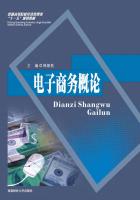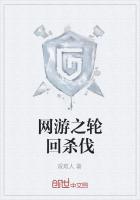THE MEDIAEVAL CITY
WHY THE PEOPLE OF THE MIDDLE AGES SAID THAT "CITY AIR IS FREE AIR"THE early part of the Middle Ages had been an era of pioneering and of settlement. A new people, who thus far had lived outside the wild range of forest, mountains and marshes which protected the north-eastern frontier of the Roman Empire, had forced its way into the plains of western Europe and had taken possession of most of the land. They were restless, as all pioneers have been since the beginning of time. They liked to be "on the go." They cut down the forests and they cut each other's throats with equal energy.
Few of them wanted to live in cities. They insisted upon being "free," they loved to feel the fresh air of the hillsides fill their lungs while they drove their herds across the wind-swept pastures.
When they no longer liked their old homes, they pulled up stakes and went away in search of fresh adventures.
The weaker ones died. The hardy fighters and the courageous women who had followed their men into the wilderness survived. In this way they developed a strong race of men. They cared little for the graces of life. They were too busy to play the fiddle or write pieces of poetry. They had little love for discussions. The priest, "the learned man" of the village (and before the middle of the thirteenth century, a layman who could read and write was regarded as a "sissy") was supposed to settle all questions which had no direct practical value. Meanwhile the German chieftain, the Frankish Baron, the Northman Duke (or whatever their names and titles) occupied their share of the territory which once had been part of the great Roman Empire and among the ruins of past glory, they built a world of their own which pleased them mightily and which they considered quite perfect.
They managed the affairs of their castle and the surrounding country to the best of their ability. They were as faithful to the commandments of the Church as any weak mortal could hope to be. They were sufficiently loyal to their king or emperor to keep on good terms with those distant but always dangerous potentates. In short, they tried to do right and to be fair to their neighbours without being exactly unfair to their own interests.
It was not an ideal world in which they found themselves.
The greater part of the people were serfs or "villains," farm- hands who were as much a part of the soil upon which they lived as the cows and sheep whose stables they shared. Their fate was not particularly happy nor was it particularly unhappy. But what was one to do? The good Lord who ruled the world of the Middle Ages had undoubtedly ordered everything for the best. If He, in his wisdom, had decided that there must be both knights and serfs, it was not the duty of these faithful sons of the church to question the arrangement.
The serfs therefore did not complain but when they were too hard driven, they would die off like cattle which are not fed and stabled in the right way, and then something would be hastily done to better their condition. But if the progress of the world had been left to the serf and his feudal master, we would still be living after the fashion of the twelfth century, saying "abracadabra" when we tried to stop a tooth-ache, and feeling a deep contempt and hatred for the dentist who offered to help us with his "science," which most likely was of Mohammedan or heathenish origin and therefore both wicked and useless.
When you grow up you will discover that many people do not believe in "progress" and they will prove to you by the terrible deeds of some of our own contemporaries that "the world does not change." But I hope that you will not pay much attention to such talk. You see, it took our ancestors almost a million years to learn how to walk on their hind legs.
Other centuries had to go by before their animal-like grunts developed into an understandable language. Writing--the art of preserving our ideas for the benefit of future generations, without which no progress is possible was invented only four thousand years ago. The idea of turning the forces of nature into the obedient servants of man was quite new in the days of your own grandfather. It seems to me, therefore, that we are making progress at an unheard-of rate of speed. Perhaps we have paid a little too much attention to the mere physical comforts of life. That will change in due course of time and we shall then attack the problems which are not related to health and to wages and plumbing and machinery in general.
But please do not be too sentimental about the "good old days." Many people who only see the beautiful churches and the great works of art which the Middle Ages have left behind grow quite eloquent when they compare our own ugly civilisation with its hurry and its noise and the evil smells of backfiring motor trucks with the cities of a thousand years ago.
But these mediaeval churches were invariably surrounded by miserable hovels compared to which a modern tenement house stands forth as a luxurious palace. It is true that the noble Lancelot and the equally noble Parsifal, the pure young hero who went in search of the Holy Grail, were not bothered by the odor of gasoline. But there were other smells of the barnyard variety--odors of decaying refuse which had been thrown into the street--of pig-sties surrounding the Bishop's palace-- of unwashed people who had inherited their coats and hats from their grandfathers and who had never learned the blessing of soap. I do not want to paint too unpleasant a picture.
But when you read in the ancient chronicles that the King of France, looking out of the windows of his palace, fainted at the stench caused by the pigs rooting in the streets of Paris, when an ancient manuscript recounts a few details of an epidemic of the plague or of small-pox, then you begin to under- stand that "progress" is something more than a catchword used by modern advertising men.















